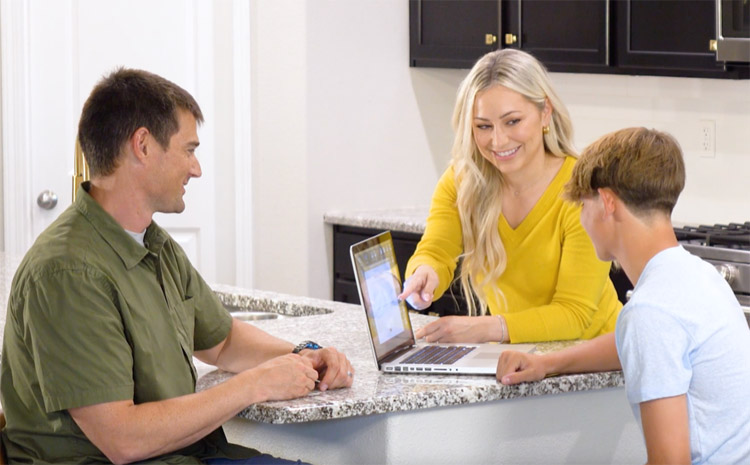Prepare your teen for safe driving with these RideBeside talking points.
As a RideBeside parent, you have taken a very important step toward helping your teen navigate the risky first years of driving.
Having conversations with your teen about driving is essential to promote their safety and the development of safe driving habits early in their life. You are no doubt the most important influence on your teen’s development of safe driving habits, however sometimes parents can benefit from a guide to help them organize their thoughts and approach these critical – and sometimes delicate – conversations.
The relationship between you and your teen is unique. Below are some topics and information provided for you as a list of possible conversation points you can tailor to match your teen’s maturity level and personality. These tips are intended as ideas to help you navigate the conversation successfully.
- Start early. Begin talking about driving well in advance of your teen getting their driver’s license. This allows for gradual and meaningful conversations about expectations, rules, and responsibilities.
- Lead by example. Show responsible driving habits yourself. Your teen looks up to you as a role model, so demonstrate safe driving practices, such as using seatbelts, obeying traffic laws, and avoiding distractions while behind the wheel.
- Emphasize their safety. Stress how important their safety and wellbeing are to you. Discuss the risks of distracted driving, speeding, and driving under the influence. Please see the “Five reasons your teen will make dangerous decisions behind the wheel” article in the Parent Info section of RideBeside.com. This will give you some additional ideas on statistics and themes you may want to use. Reinforce the need for responsible decisions and behaviors.
- Discuss gradual progression. Drivers Ed is a great first step toward developing foundational skills and familiarity with traffic laws. However, it often gives teens – and often parents – a false sense of readiness for the road. Discuss with your teen how in their first year of driving they will encounter unanticipated situations behind the wheel and how gradual exposure is key to their success. Let your teen know that you will put limits on their driving permissions early but that together you will relax these permissions as they gain confidence and experience.
- Introduce RideBeside as a tool that will help them during this initial period of learning to drive. Key points to discuss with them include:
- RideBeside is not a surveillance or ‘Big Brother’ app. It is an app that provides them real time feedback through their phone if they make a risky decision. Emphasize that you will not be able to check their location and that you trust them, hence RideBeside.
- RideBeside is a phone-based app that will help them hone their driving skills as they face new situations and gain experience.
- Together you will set a profile that aligns with their current skill level.
- As their skills develop you will again work with them to relax and reset the profile.
- Set clear expectations using the RideBeside Teen Driver Contract. Establish rules regarding curfews, passenger limits, phone usage, maintenance responsibilities, and consequences for breaking the rules. Clearly communicate your expectations and mutually agree on them, so they feel involved in the decision-making process. Consider using our free ‘Teen Driver Contract’ template that can be found in the Parent Info section of Ridebeside.com. This Contract helps you have a productive conversation with your teen about safe driving. This contract should align with the Driver Profile you program in your teen’s phone app. Using the template will help establish a sense of partnership between you and your teen.
- Address their concerns. Understand that your teen may have fears and concerns about driving. Encourage open communication and assure them of your support and remind them that developing driving skills takes time. If they are concerned about peer pressure from friends, let them know that the RideBeside app is often used by teens as a reason to say ‘no’ to risky things their friends may encourage.
- Discuss potential consequences. Have an honest conversation about the potential consequences of irresponsible driving behavior, both legal and personal. The “Five reasons your teen will make dangerous decisions behind the wheel” can once again be a valuable resource of information for this conversation. Talk about the impact of traffic violations, accidents, and the potential loss of driving privileges as you see fit.
Remember, ongoing and open communication is essential. Continue having conversations about driving with your teen as they gain experience and even after your teen gets their license, to reinforce good habits and address any concerns or issues that arise.





